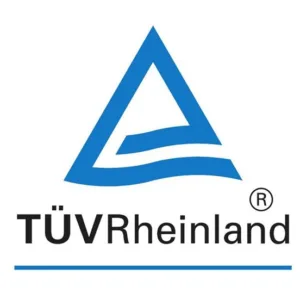The international independent third-party testing, inspection, and certification organization, TÜV Rheinland Group, has announced the launch of the Eyesafe Display Standard. It is based on clinical health and safety research covering comprehensive high-energy visible blue light management and display color requirements. The upgraded certification process was formally implemented from March 5, 2020.
It will put forward a set of new requirements for the global consumer electronics and display industry, and provide guidance for information technology industry high-intensity users across the public, enterprise, and education vertical sectors.
Industry-wide interest in low blue light solutions and standards has dramatically increased in recent years. As the eye care standard maker in the display field, TÜV Rheinland has once again worked with Eyesafe®, the leader in new technology research & development on blue light management, to develop the Eyesafe Display Standard. It represents the most comprehensive set of health and safety requirements for low blue light to date. The new requirements are based on the latest blue light photobiological mechanism research, over 250 leading research studies, and input from leaders in the healthcare community, including world-renowned optometrists and ophthalmologists. Areas of consideration included in the development of the Eyesafe Display Standard include the impacts of cumulative exposure to high-energy blue light, toxic spectrum and beneficial blue light spectrum, color performance and health issues including sleep, dry eye, and digital eye strain, and potential long-term retina health.
“This is a landmark moment in the global display industry,” said Kalyan Varma, Vice President of TÜV Rheinland, Business Field Electrical, Global, at the launch. “The Eyesafe Display Standard is the only of its kind backed by research from healthcare and endorsed by leading ophthalmologists and optometrists worldwide. We encourage all manufacturers and consumer electronics brands who are serious about the health and safety of their end-consumers to ensure that their displays are meeting the requirements of the Eyesafe Display Standard.”
Products that have passed the Eyesafe Display Standard requirements will receive an AK Certificate (Certificate of Conformance) issued by TÜV Rheinland, including the test report. Consumers can obtain information on certified products on the TÜV Rheinland certificate database Certipedia, which helps facilitate consumers’ understanding of a product and enhance confidence in the purchase. With TÜV Rheinland AK Certificate, manufacturers can apply for using the Eyesafe Display label authorized by Eyesafe®, and optionally apply for TÜV Rheinland Low Blue Light (Hardware Solution) certification, as the Eyesafe Display Standard covers all the requirements.
In addition, the Eyesafe Display Standard, through TÜV Rheinland’s new certification process, will assist the electronics display industry, from component suppliers to consumer brands, by delivering a guiding set of requirements for the development of low blue light-emitting displays that conform to a set of standards approved by internationally-recognized leading physicians in eyecare.
“Developed based on the TÜV Rheinland Low Blue Light standard, we will bring consumer electronics brands and component suppliers a set of new standards backed by clinical health and safety research to follow in designing and managing blue light emissions on their devices,” said H. Burkhard Dick, MD, PhD, and Chairman of the Ruhr University Eye Hospital in Bochum, Germany, who also serves as the President of the German Society of Cataract, Refractive and Interventional Surgery (DGII.). “So many of the past attempts to manage low blue light were made with no input from doctors in the eyecare community, who are on the front line of consumer eye health and safety. The Eyesafe Display Standard will simplify things for consumers, IT procurement professionals, insurers, and regulators, who can now look for the Eyesafe Display label to know that the device they are using meets the set of requirements approved by leading eye health physicians worldwide.”
“We are pleased to be collaborating in-depth with TÜV Rheinland on this important global health issue — screen time has exceeded waking hours for many users worldwide, and consequently, cumulative exposure to display screen and high-energy visible blue light is increasing,” said Justin Barrett, Chief Executive Officer of Eyesafe®. “We believe that this certification process will empower brands and suppliers in communicating to customers their commitment to health and the safety of users in a transparent fashion.”
About the Eyesafe Display Standard
Supported by Eyesafe’s Vision Healthe Advisory Board, the Eyesafe Display requirements are based on the growing body of research that suggests potential health impacts of blue light exposure and the consumer electronics industry’s requirements for accurate color performance. The Eyesafe Display Standard has been developed to provide transparency to consumers and is further built upon existing standards and guidelines developed by the American National Standards Institute (ANSI), the International Commission on Non-Ionizing Radiation Protection (ICNIRP), Eyesafe and TÜV Rheinland.
Recent studies have shown growing concerns over potential long-term eye health impacts from digital screen usage and cumulative blue light exposure, in addition to recognized impacts of device use on circadian rhythms and sleep patterns. Blue light exposure research and studies on animals’ cells have shown that blue light in a range of 415 to 455 nm generated the greatest phototoxic risk to retinal pigment epithelium cells, with photoreceptor cell apoptosis seen early after the retina is damaged by blue light*.
About TÜV Rheinland
TÜV Rheinland is a global leader in independent inspection services, founded nearly 150 years ago. The group maintains a worldwide presence of more than 20,000 people; annual turnover is EUR 2 billion. The independent experts stand for quality and safety for people, technology and the environment in nearly all aspects of life. TÜV Rheinland inspects technical equipment, products and services, oversees projects, and helps to shape processes and information security for companies. Its experts train people in a wide range of careers and industries. To this end, TÜV Rheinland employs a global network of approved labs, testing and education centers. Since 2006, TÜV Rheinland has been a member of the United Nations Global Compact to promote sustainability and combat corruption. Website: www.TÜV.com

